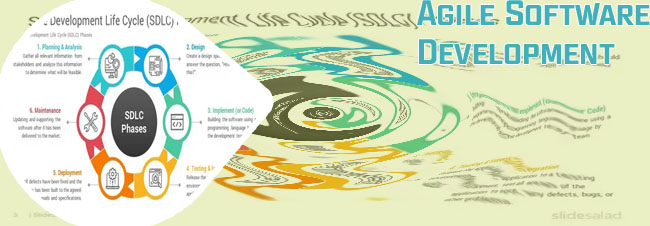Agile sdlc

Agile Frameworks & Techniques
Your guide to modern Product Lifecycle Management (PLM) software (PDF) Traditional sdlc Agile forms the basis of many of today’s digital workflows. Cloud computing, with its flexible, scalable, IT infrastructure, has grown up in parallel with the demands of agile software development. Cloud-native development embraces an agile-like notion of software as a series of interconnected services that scale to meet business needs.
Agile product management lifecycle
In a traditional software development scenario, the project deadline is tackled casually at first and as the deadline is approaching, everyone in the team works continuously for long hours to meet the deadline. This puts undue pressure on every member and will ultimately affect the project. In an agile environment, since the project is approached incrementally, each fragment of working software is tested by all the stakeholders, and only upon its success, the team is moved to the next fragment. This steady constant pace between all the sponsors, developers, and users in the Agile project lifecycle promotes sustainable development. The four values of Agile With an Agile workflow management software, your team can achieve better productivity. Updates can be shared easily, and the entire team can collaborate more effectively. Ineffective communication between team members can lead to unnecessary delays or shortcomings in the final product. This can be avoided with the application of Agile technology in the software development life cycle.Core Difference between SDLC vs Agile methodologies
An Agile SDLC combined with AppSec helps developers deliver more secure code because security measures are part of development instead of being considered later. Before exploring the benefits of Agile, it’s worth reviewing why software development is shifting from the Waterfall methodology to Agile development. Step 5. Retrospective and Next Sprint Planning Agile breaks down the project into different, workable units. It enables agile teams to focus on high-quality software development, collaboration, and testing. When iterations are ongoing, regular builds, testing, and evaluation are conducted. Doing this enables the team to focus on high-quality development, collaboration, and testing.